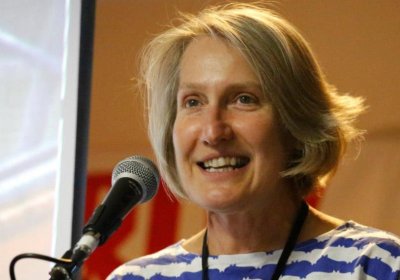Australian Council of Social Service (ACOSS) campaign coordinator Pas Forgione outlined why a campaign to “Raise the rate” of the Newstart unemployment benefit is desperately needed, at a June 15 community forum in Sydney’s west.
Homelessness
More support services may not have saved Courtney Herron’s life. But surely she, and other vulnerable people, have a right to expect more support, writes Sue Bull.
Statistics released by the Australian Bureau of Stastics on July 24 show 28,600 or 16.5% of people experiencing homelessness in Australia have full-time jobs.
The figures also show more than one-third of homeless people aged over 15 are employed in some capacity.
A total of 61,500 people are employed in some way, but their wages do not pay enough to put a roof over their head.
Nearly half the homeless population — 45.6% — is either in work or looking for work, and the unemployment rate for people experiencing homelessness is 22.5%.
In a dawn raid on May 4, about 20 police descended on protesters, who had set up tents on the lawn in front of Hobart’s Parliament House to protest the state government’s lack of response to Hobart’s housing crisis, and ordered them to move on.
Housing is a basic human right, but under neoliberal capitalism it has become a privilege enjoyed by fewer and fewer people.
After more than six months camped outside the Reserve Bank building in Martin Place, and following months of negotiations between the state government and the City of Sydney Council, the homeless occupants of Sydney’s tent city began packing up their belongings on August 11.
The man often called the “Mayor of Martin Place”, Lanz Priestley, said some camp dwellers were moving to “friend’s places” or “friend’s backyards”, but some “don’t have anywhere to go”.
Last week was Homelessness Week. It was also the week when the 76 homeless people sleeping in Martin Place were removed by the NSW Coalition government.
Sydney City Council has, at least, defended the “tent city” and taken a more pro-active role in trying to find solutions, compared with the NSW government which simply wants to wash its hands of this enormous problem.
Many councils across Australia have local laws that restrict free speech. Most people are unaware of these laws, until there is an issue that engages them enough to want to exercise their right to free speech and set up a stall, hand out leaflets, get petitions signed and maybe organise a protest rally.
Only when a council officer tells them they have to pack up and leave, do they realise there are undemocratic laws on the books.
Peter Cundall turns 90
Peter Cundall’s 90th birthday on April 1 was celebrated in Hobart with “Pete’s Picnic”, a public picnic in the Royal Tasmanian Botanical Gardens.
Born in Manchester to a poverty-stricken family in 1927, Cundall migrated to Tasmania in 1956.
He became a household name as the host of ABC TV’s Gardening Australia but his love of nature also led him to become an environmental activist.
He was involved with protests against the Franklin Dam in the 1970s and ’80s.
A public forum on March 17 discussed the implications of Melbourne City Council's proposed amendments to Activities Local Law 2009.
The changes would broaden the definition of “camping” to mean people currently sleeping rough could be forcibly moved on by police and face fines for possessing a piece of cardboard or bedding. The city of Melbourne would be effectively criminalising homelessness.
Laws prohibiting the homeless from sleeping, eating, soliciting, or, let’s face it, being seen in public, are older than most modern institutions.
- Previous page
- Page 4
- Next page











